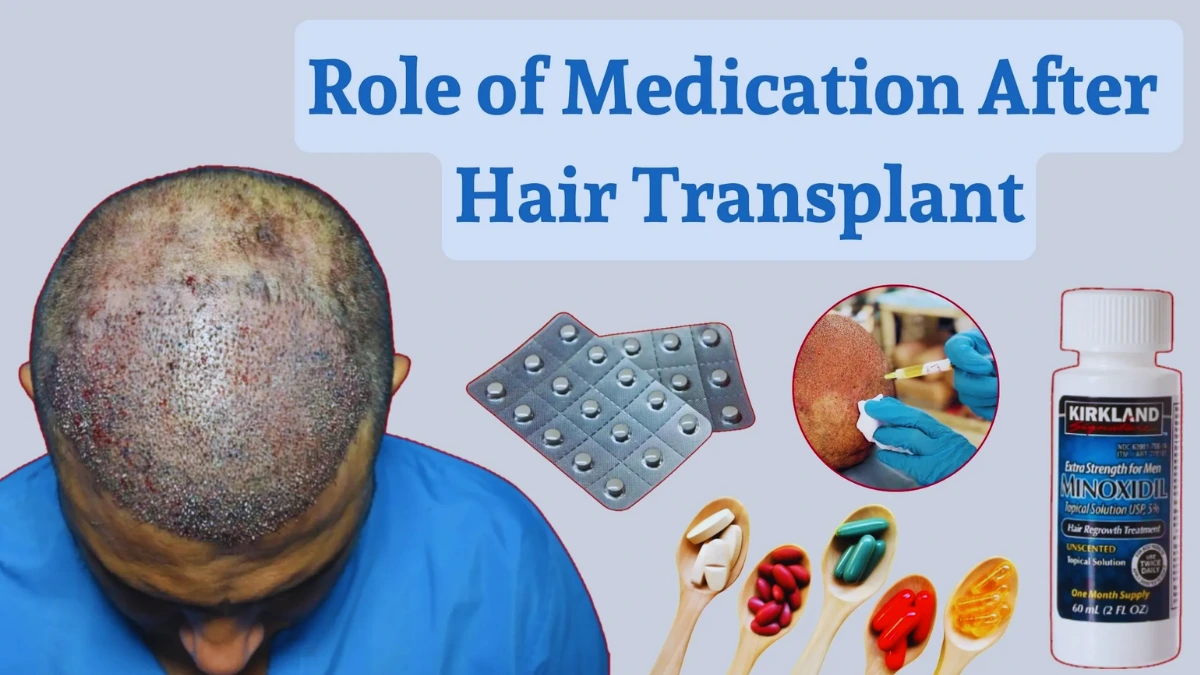
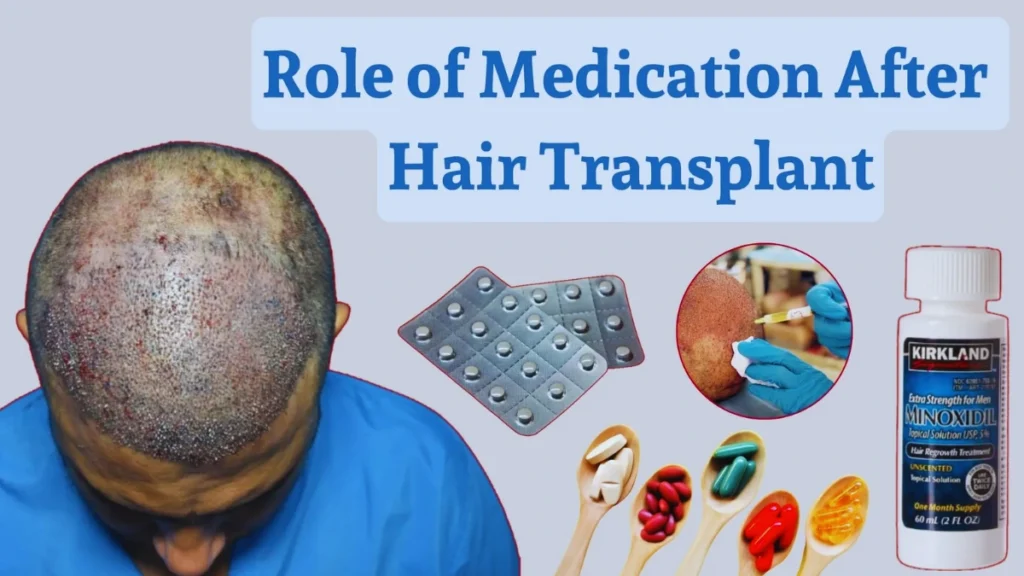
Medicine After Hair Transplant: Hair transplant surgery is a highly effective solution for hair loss and baldness, offering individuals a chance to regain their hair and confidence. However, the success of the procedure largely depends on proper post-operative care, including the use of prescribed medications. This article explores the essential medicines and care required after a hair transplant to ensure optimal healing and results.
Book Your Consultation Today
Visit Dr. Hanan Dermatology Specialty Clinic in Padur, OMR, Chennai. Schedule your consultation today and start your journey to fuller, healthier hair.
For more information and to book your appointment, visit our clinic or call us at the clinic’s contact details.
Understanding Hair Transplant Recovery
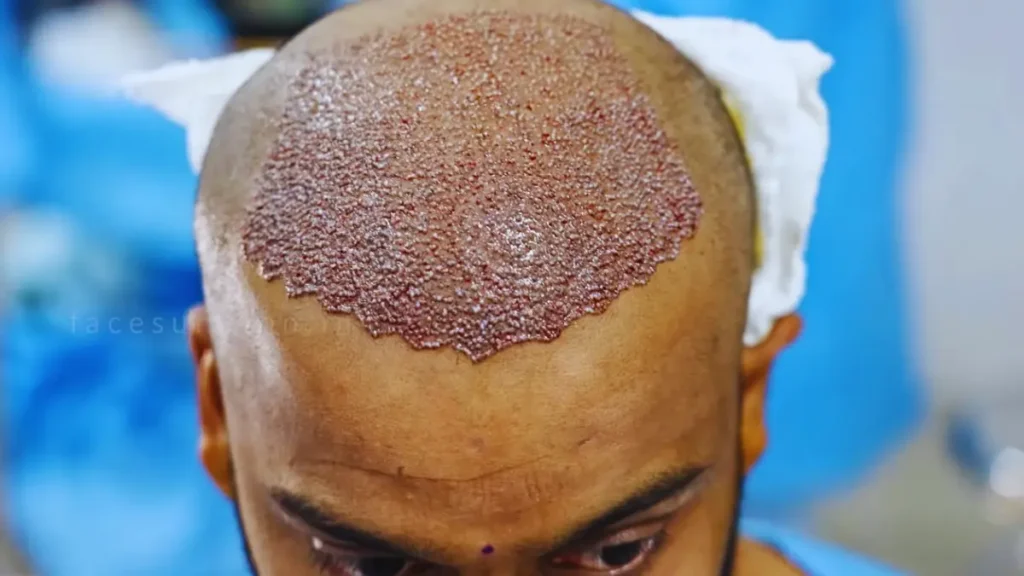
Typical Recovery Timeline
The recovery process after a hair transplant varies from person to person, but most patients can expect to return to normal activities within a week. Full recovery and the appearance of new hair growth can take several months. The typical recovery timeline includes:
- First Few Days: Swelling, redness, and mild discomfort are common.
- First Week: Scabs and crusts form around the transplanted grafts.
- 2-3 Weeks: Shedding of transplanted hair, which is normal.
- 3-6 Months: Noticeable new hair growth begins.
- 6-12 Months: Full results with mature hair growth.
Read more: Hair Follicle Surgery A Complete Guide to Hair Restoration
Common Symptoms and Side Effects Post-Surgery
- Swelling and bruising around the forehead and eyes.
- Mild pain and discomfort in the donor and recipient areas.
- Itching and scabbing on the scalp.
- Temporary hair shedding from the transplanted area.
Importance of Following Medical Advice
Adhering to your surgeon’s post-operative instructions is crucial for a smooth recovery and optimal results. This includes taking prescribed medications, following care routines, and attending follow-up appointments.
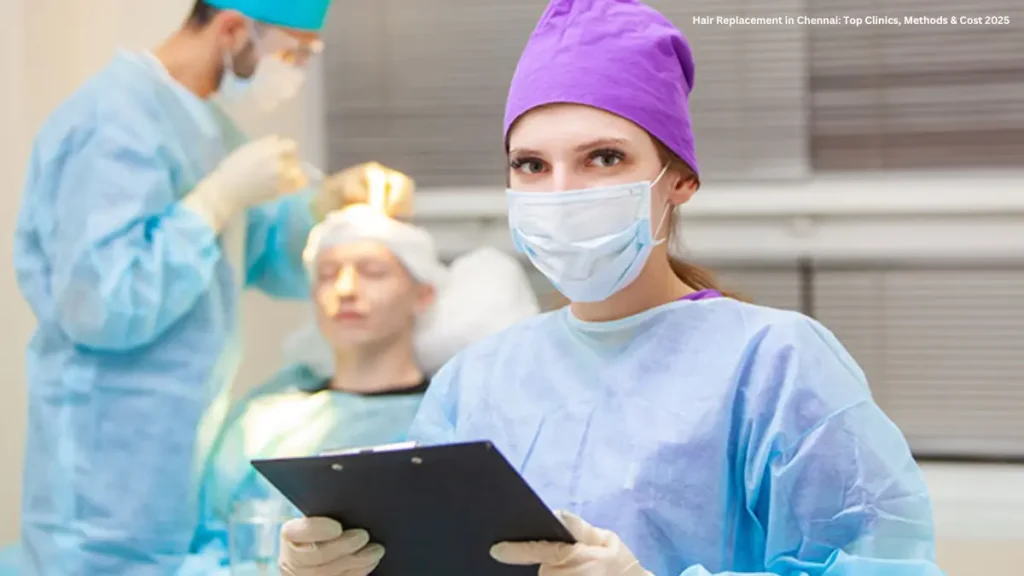
Read more: Hair Replacement in Chennai: Top Clinics, Methods & Cost 2025
Medications Prescribed After Hair Transplant
| Medicine Type | Purpose | Examples | Usage Duration |
|---|---|---|---|
| Antibiotics | Prevents infections in the surgical area | Amoxicillin, Ciprofloxacin | Typically 5–7 days |
| Pain Relievers | Alleviates mild to moderate post-operative pain | Paracetamol, Ibuprofen | As needed for 3–5 days |
| Anti-Inflammatory Drugs | Reduces swelling and inflammation | Prednisolone, Methylprednisolone | 3–5 days |
| Antihistamines | Relieves itching caused by healing | Cetirizine, Loratadine | 7–14 days (if required) |
| Hair Growth Medications | Stimulates new hair growth and strengthens roots | Minoxidil, Finasteride | As recommended (long-term) |
| Antiseptic Solutions | Cleans the scalp and prevents infections | Betadine, Chlorhexidine | As directed (during washing) |
| Vitamin Supplements | Boosts recovery and supports hair growth | Biotin, Zinc, Multivitamins | As recommended (long-term) |
Key Notes on Medication Usage
- Antibiotics: Complete the full course to prevent infections, even if no symptoms appear.
- Pain Relievers: Take only when necessary to manage discomfort; avoid exceeding the prescribed dosage.
- Anti-Inflammatories: These help reduce swelling and should be taken exactly as prescribed.
- Hair Growth Medications: Finasteride and Minoxidil may require long-term use to maintain results.
- Avoid Self-Medication: Do not add or substitute any medication without consulting your doctor.
If you have any allergies or pre-existing conditions, inform your surgeon before taking any of these medications.
Painkillers
Painkillers, such as paracetamol or ibuprofen, are often prescribed to manage post-operative pain and discomfort. These medications help keep you comfortable during the initial recovery period.
Anti-Inflammatory Drugs
Anti-inflammatory drugs, like naproxen or diclofenac, are prescribed to reduce swelling and inflammation. These medications help alleviate discomfort and promote faster healing.
Antibiotics
Antibiotics are essential to prevent infections in the donor and recipient areas. Commonly prescribed antibiotics include amoxicillin and cephalexin. It is important to complete the full course of antibiotics as directed.
Hair Growth Stimulants
Medications such as minoxidil and finasteride may be prescribed to stimulate new hair growth and prevent further hair loss. These hair growth stimulants help enhance the overall results of the hair transplant.
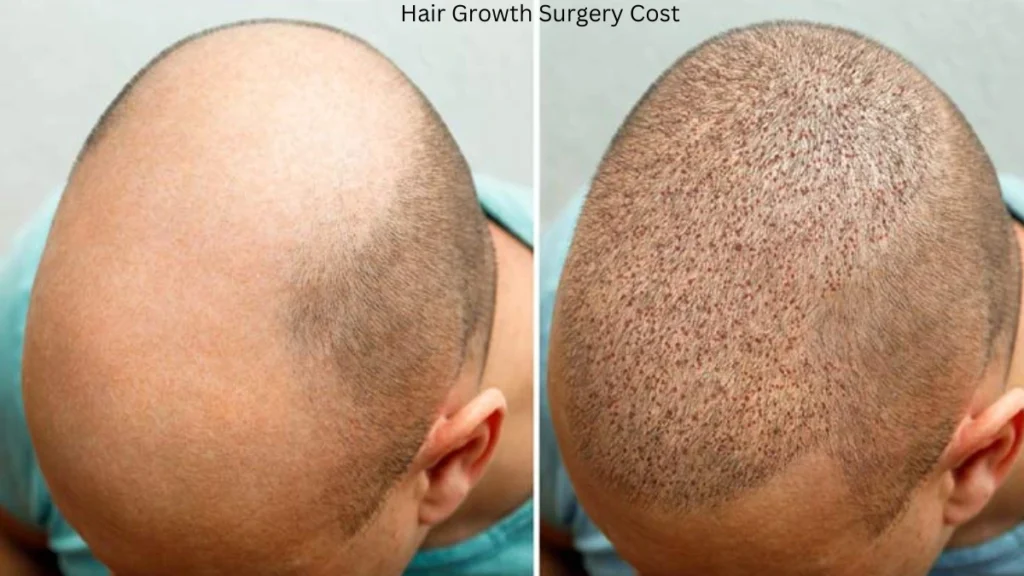
Read more: Hair Growth Surgery Cost
Topical Ointments
Topical ointments, such as those containing antibiotics or hydrocortisone, may be applied to the scalp to control itching, reduce inflammation, and minimize scarring.
Dos and Don’ts After Hair Transplant
Dos
- Apply Sterile Solutions: Use sterile saline solutions to keep the scalp clean and moisturized.
- Keep the Scalp Clean: Gently wash the scalp with a mild shampoo as instructed by your surgeon.
- Sleep with Head Elevated: Elevate your head while sleeping to reduce swelling.
- Take Prescribed Medications: Follow your medication regimen as directed by your surgeon.
Don’ts
- Avoid Harsh Hair Products: Refrain from using hair products containing alcohol or harsh chemicals.
- Don’t Touch or Scratch the Scalp: Avoid touching, scratching, or rubbing the transplanted area.
- Refrain from Alcohol and Smoking: Alcohol and smoking can interfere with the healing process and should be avoided.
- Avoid Strenuous Activities: Refrain from heavy lifting, exercise, and activities that may cause sweating for at least a week.
Tips for Optimal Healing and Results
Hydration and Nutrition
Staying hydrated and maintaining a balanced diet rich in vitamins and minerals can promote faster healing and support new hair growth.
Sun Protection
Protect your scalp from direct sunlight by wearing a hat or using sunscreen. UV rays can damage the healing tissues and affect the transplant results.
Follow-Up Appointments
Attend all scheduled follow-up appointments with your surgeon to monitor your progress and address any concerns.
Managing Expectations
Understand that hair growth is a gradual process. Patience is key, as it can take several months to see the full results of your hair transplant.
Potential Side Effects and How to Manage Them
Swelling and Bruising
Swelling and bruising around the forehead and eyes are common and typically subside within a few days. Applying cold compresses and keeping your head elevated can help reduce swelling.
Pain and Discomfort
Mild pain and discomfort are normal after a hair transplant. If pain persists or worsens, contact your surgeon for advice.
Infection Signs
Signs of infection include increased redness, swelling, pus, and a high fever. If you notice any of these symptoms, seek medical attention immediately.
Long-Term Care and Maintenance
Continued Use of Medications
Continue using hair growth stimulants, such as minoxidil and finasteride, as directed by your surgeon. These medications can help maintain and enhance the results of your hair transplant.
Lifestyle Adjustments
Maintain a healthy lifestyle, including regular exercise, a balanced diet, and avoiding smoking and excessive alcohol consumption, to support overall hair health.
Regular Scalp Care
Practice regular scalp care by keeping the area clean and using gentle hair products. Avoid excessive styling and heat treatments that can damage the hair.
Success Stories and Testimonials
Patient Experiences
Real-life success stories and testimonials from patients who have undergone hair transplant surgery can provide valuable insights into the recovery process and results.
Before and After Photos
Before and after photos of successful hair transplant procedures showcase the transformative effects and help manage expectations.
FAQs
1. Why is Necessary Medicine After Hair Transplant?
Medication is essential to:
- Prevent infections.
- Minimize swelling and discomfort.
- Promote healing and hair regrowth.
2. What are the most commonly prescribed medicines after a hair transplant?
Here’s a list of medications you might be prescribed:
| Medicine Type | Purpose |
|---|---|
| Antibiotics | Prevents infections in the surgical area. |
| Pain Relievers | Alleviates post-operative pain and discomfort. |
| Anti-Inflammatory Drugs | Reduces swelling and promotes healing. |
| Hair Growth Stimulants | Stimulates new hair growth and strengthens roots. |
| Antihistamines | Reduces itching caused by the healing process. |
| Vitamin Supplements | Supports recovery and long-term hair growth. |
3. How long do I need to take Medicine After Hair Transplant?
- Antibiotics: Typically 5–7 days.
- Pain Relievers and Anti-Inflammatory Drugs: 3–5 days or as needed.
- Hair Growth Stimulants and Vitamins: Often prescribed for several months or long-term use.
Always follow your doctor’s recommendations regarding dosage and duration.
4. Are there any side effects of the medications?
Most post-operative medications are safe when taken as prescribed. However, potential side effects may include:
- Mild stomach upset (antibiotics).
- Drowsiness or dizziness (pain relievers and antihistamines).
- Rare allergic reactions.
If you experience unusual symptoms, consult your doctor immediately.
5. Can I stop taking the Medicine After Hair Transplant once I feel better?
No. Even if you feel better, it’s important to complete the full course of antibiotics and other prescribed medications to avoid complications such as infections or delayed healing.
6. Are there any over-the-counter medicines I can take?
It’s best to avoid self-medicating. Stick to the medications prescribed by your surgeon to ensure safety and effectiveness.
7. What should I avoid while taking post-transplant medications?
- Alcohol: Can interfere with healing and the effectiveness of certain drugs.
- Smoking: Slows down the healing process.
- Excessive Sun Exposure: Can irritate the scalp.
- Vigorous Physical Activities: Avoid for at least 2–3 weeks post-surgery.
8. Are hair growth medications like Minoxidil and Finasteride mandatory?
While not mandatory, these medications can significantly enhance the results of your transplant by promoting hair regrowth and preventing further hair loss. Your doctor will assess if these are suitable for you.
9. Can vitamins or supplements improve recovery?
Yes, vitamins like Biotin, Zinc, and Vitamin D support hair health and recovery. However, take only those recommended by your doctor.
10. What should I do if I forget a dose?
If you miss a dose, take it as soon as you remember. However, if it’s close to your next scheduled dose, skip the missed one. Do not double the dose to make up for it.

